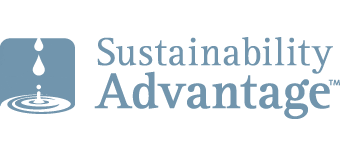BASIC SUSTAINABILITY ASSESSMENT TOOL (BSAT)
Comparison of Sustainability Assessment Frameworks
Some frameworks are used by organizations to plan, assess and report on their progress towards sustainability-related goals that they have set for themselves (e.g., GRI, SDGs, CSRD, SASB, TCFD, B Corp BIA, ISO 26000). Other frameworks are used by 3rd parties to rate and rank companies on their sustainability performance (e.g., Global 100, DJSI, 100 Best Corporate Citizens, CDP). All these frameworks are designed for use by large organizations. However, small- and medium-sized enterprises (SMEs) comprise over 99% of the companies on the planet. We need an SME-friendly sustainability self-assessment tool: Basic Sustainability Assessment Tool (BSAT).
This free, open-source spreadsheet / table (current as of April 2024) compares how the dozen sustainability reporting, assessment and ranking frameworks used by large companies assesses core environmental, employee, community and governance sustainability topics / issues. BSAT is designed to cover the same issues in an SME-friendly way.
Basic Sustainability Assessment Tool (BSAT)
BSAT is a comprehensive, generic tool that is designed for use by any-size organization, in any sector, in any country. It may be especially helpful for small- and medium-sized enterprises (SMEs), and large organizations with minimal or no sustainability staff. The tool assesses performance on the core sustainability issues relative to science-based goals. The tool assesses an organization’s progress on reducing / eliminating its harmful impacts on the environment, its employees, and society. It also gives bonus points if the organization is being regenerative, either directly or indirectly, through its products, services and donations that amplify others’ positive impacts or help others cause less harm..
This tool expresses an organization’s sustainability performance in three ways:
- As scores on progress toward science-based goals for core sustainability issues that arise at the organization’s impact points on people and planet.
- As scores on contributions to the 17 Sustainable Development Goals (SDGs).
- As scores on impacts on the 3 non-financial capitals (natural, human, and social).
Organizations can express their sustainability scores in whichever framework’s terminology is most appropriate for their purposes. That is why the tool was previously called the “3-in-1 Sustainability Assessment Toolkit.”
The free Excel version of the tool is downloadable here. It is an open-source tool, so feel free to tailor it to better suit your purposes, translate it into other languages, change question weightings, change scoring formulas, use it as a base for an online app, integrate elements of it into your current tools, etc.
Note: Do not try to use this Excel workbook in Google Sheets. Unfortunately, all checkboxes are stripped out by Google Sheets, so formatting and many calculations won’t work.
BSAT Support Resources
Quick overview: This 4:28 minute video was created in November 2022 as an entry in the TBLI Better World Prize for the People’s Choice Award for Best ESG Measurement System. It explains why BSAT was created and its feature that make it the best assessment tool, at least for small businesses that comprise 98% of the companies on the planet. Click here to watch the video on YouTube.
Help videos: These three help videos provide a brief orientation to the tool:
- BSAT Overview video (6:26 mins)
- BSAT Walkthrough video (9:26 mins)
- BSAT Summaries video (9:42 mins)
Flyer: Click here to download a 2-page flyer about BSAT.
BSAT comparison to B Corp BIA: Click here to download a 2-page flyer that maps BSAT questions to questions in the B Corp B Impact Assessment (BIA).
Feedback: The tool is being continuously improved. Your suggestions are welcome. Please send your ideas to bobwillard@sustainabilityadvantage.com. Thanks.
BSAT slides
The Master – Sustainable Frameworks slide deck is one of six slide decks available to Master Slide Decks subscribers. It includes:
- Sustainability reporting status
- Sustainability frameworks (includes an overview of BSAT and how it compares to other mainstream sustainability frameworks)
- Sustainability ranking frameworks
- Business model frameworks
The master decks are updated quarterly. The slides can be used to build your own slide decks for presentations, and are excellent micro-courses / tutorials / refreshers on key aspects of sustainability topics. They are Bob’s most valued resource.

